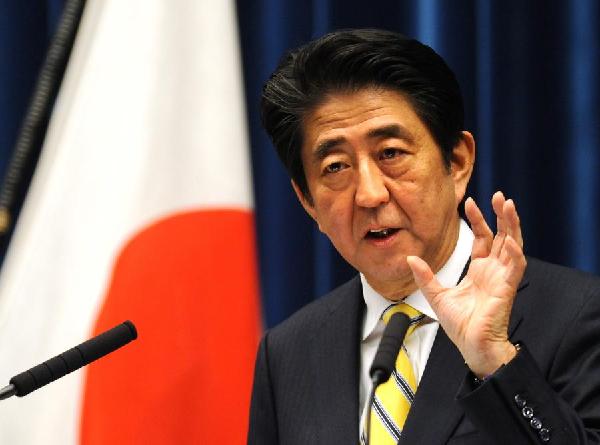
Japanese Prime Minister Shinzo Abe (File photo)
Shinzo Abe will be sworn in as Japan's 98th prime minister at a special parliament session on November 1.
The ruling coalition led by Abe won by a landslide in the lower house election on October 23. The Liberal Democratic Party (LDP) and the Clean Government Party(KOMEITO) together garnered 310 seats, two-thirds of the house, among which LDP won 261 seats, a "super majority" which guarantees its leading role in parliament.
The Constitutional Democratic Party of Japan (CDPJ), a new party established by the liberals of the Democratic Party (DP), garnered 54 seats, making it the largest opposition party. The Party of Hope, a new party of DP conservatives led by Tokyo governor Yuriko Koike lost momentum, capturing only 50 seats.
For the first time, the LDP ran on a constitutional revision platform. Abe made clear his resolution to revise the country's constitution at a press conference after the election. The LDP will be the first party to promote the legalization of Japan's Self-Defense Forces. Abe's agenda is to achieve its goal of constitutional revision by 2020, and his re-election may hasten it.
Japan's constitution provides that any revision must be supported by an over two-thirds majority at both houses, and by a majority of Japanese citizens in a referendum. Since the Party of Hope threw its support behind the revision, the number of MPs in favor of revision increased considerably after the election. Those against a constitutional revision are mainly from CDPJ and the Communist Party of Japan. The public, however, has reservations about a revision. A poll conducted by the Asahi Shimbun shows that 45 percent are against the legalization of the Self-Defense Forces while 36 percent support it.
Abe campaigned on the achievements of "Abenomics." Haruhiko Kuroda, president of the Bank of Japan, said recently he "would advance a strong monetary easing policy." The LDP proposed that instead of reducing the deficit, revenue from a hike in the consumption tax rate in October 2019 should be used to resolve the problems of aging and the decline in the birth rate.
Japan's system of small electoral districts is convenient for the strong to stay strong. Data shows that the LDP only took 48 percent of votes in small electoral districts where people vote for individual representatives, but won 75 percent of the seats. In terms of proportional representation, the CDPJ and the Party of Hope together won 37 percent of the vote, with the LDP getting 33 percent.


